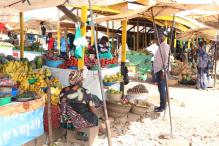With ‘premature deindustrialization’ and the growth of the informal service sector, it seems likely that high rates of informality will remain a persistent phenomenon in low- and middle-income countries in the future. The challenge for policy makers is then to find ways to encourage the movement of workers from the relatively unproductive informal sector to the more productive formal sector, while at the same time providing opportunities for more dynamic informal firms to grow. Also, there is the need for policy makers to support those working in these firms to achieve decent and remunerative work even while remaining informal. However, in this effort, policy makers are constrained by the lack of empirical evidence on the causes of informality and the most effective mechanisms to reduce informality and strengthen decent work in the sector. This research project aims to address this gap.
The project is divided into two phases:
PHASE 1: The first phase will add to the knowledge base on the causes and consequences of informality, aiming to improve the understanding of how the informal sector in low- and middle-income countries work, and promote effective policymaking. Relevant research papers have been competitively selected and contracted to be compiled and presented as a book volume and a journal special issue. These outputs aim to: (1) to characterize the livelihoods of workers in different segments of informal work and provide a better understanding of the drivers that cause workers to engage in these activities, exploring elements of choice and compulsion as well as context factors; (2) detect the main challenges and constraints that prevent workers in each segment from transitioning to a higher earning and more stable livelihood stream; and (3) provide guidance on how to foster these transitions and enhance the livelihoods of those in informal work.
PHASE 2: The second phase will assess the effects of the COVID-19 pandemic and related policy measures (e.g. government lockdown policies) on the livelihoods of workers in different segments of informal work. It also strives to evaluate which public policies are most effective in mitigating the adverse effects of the pandemic on informal workers. The results will be compiled into a book volume and stand-alone research articles.
All outputs will be published as open access in well-read outlets, be presented at events tailored to different audiences and feed into different media products, such as policy briefs and blog posts.
- Project Manager
- Michael Danquah


